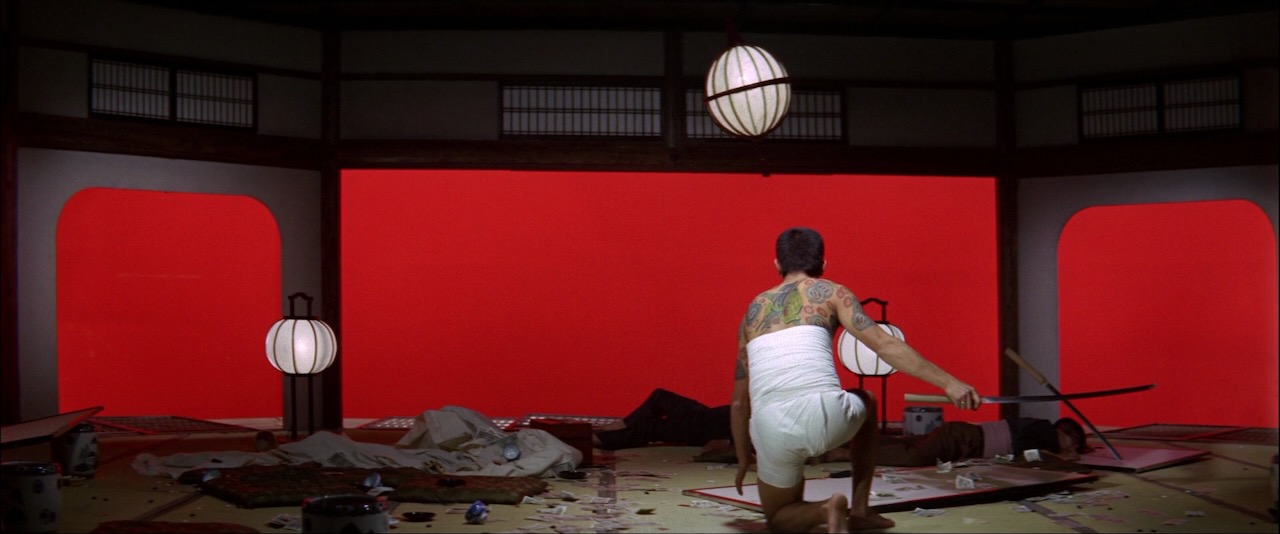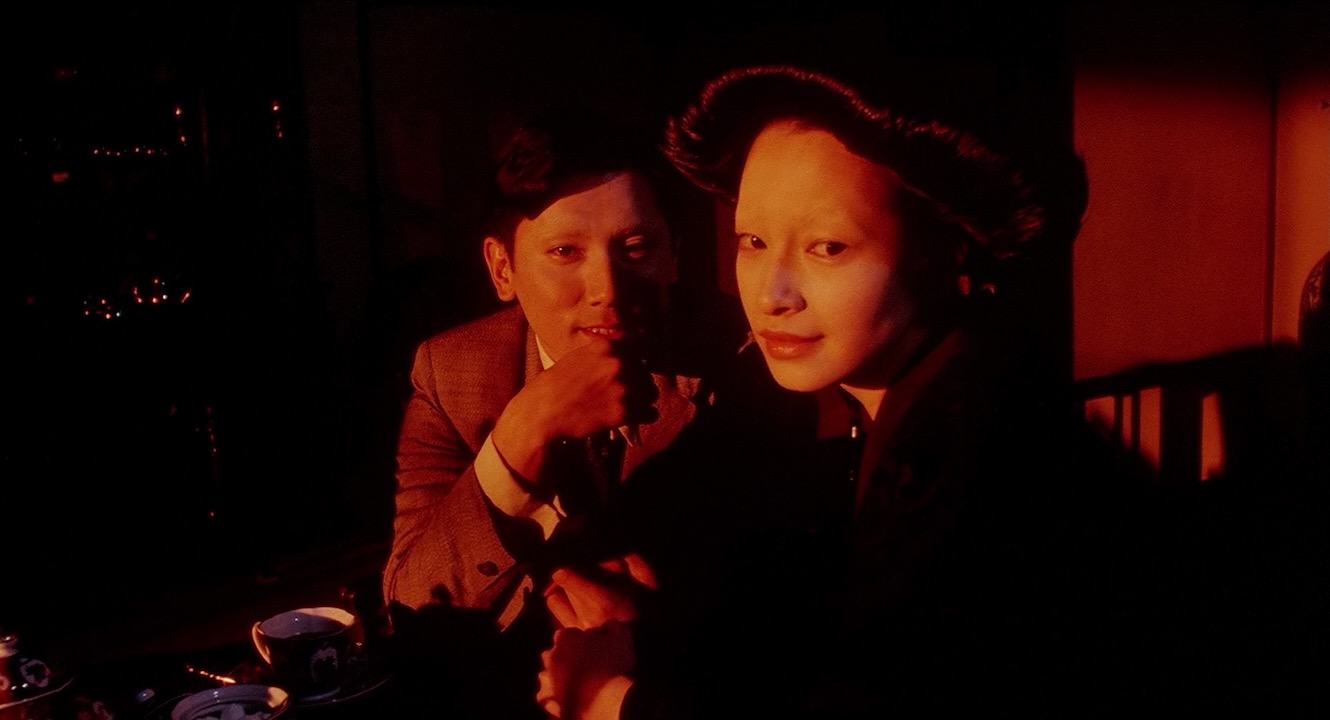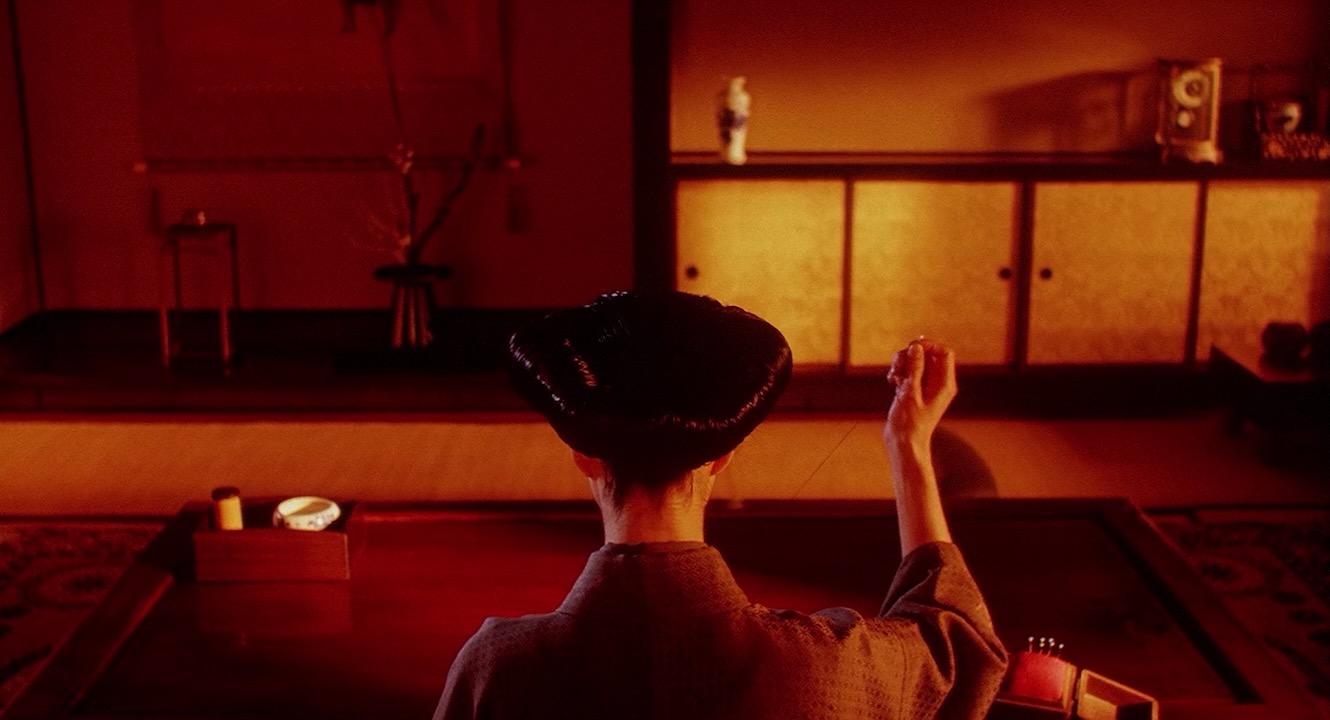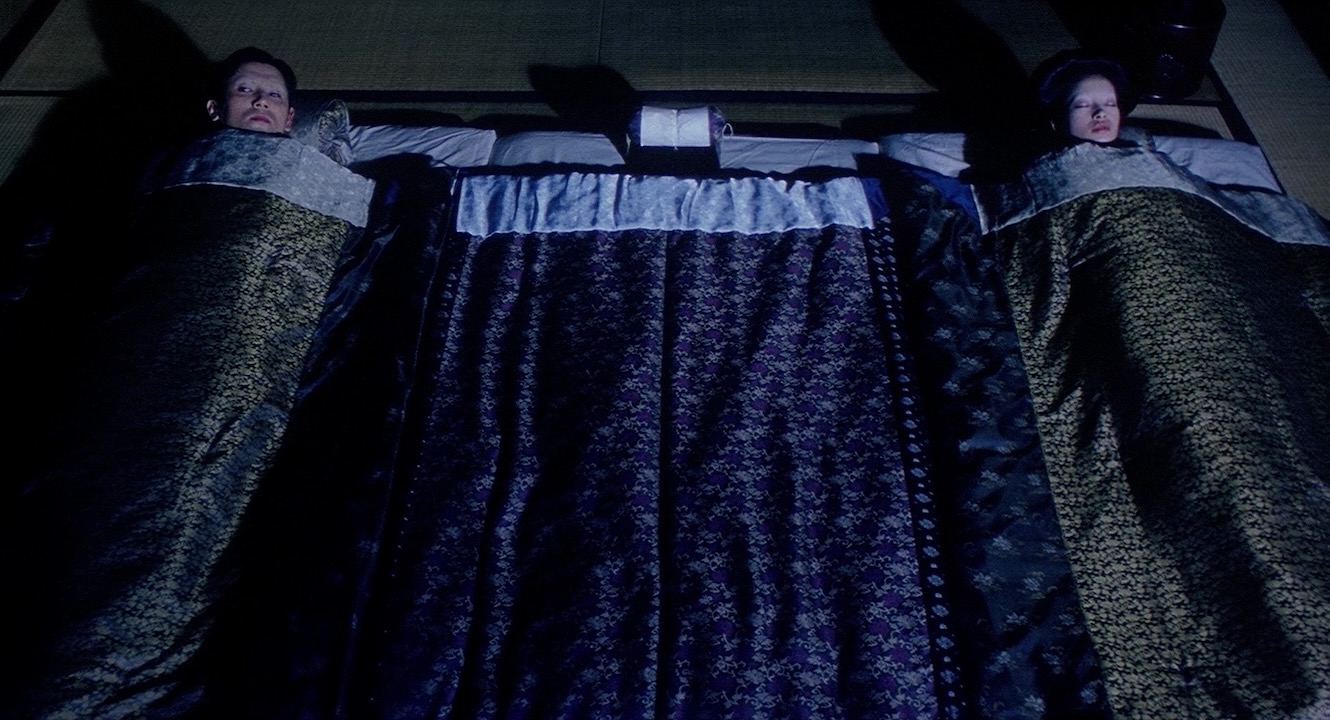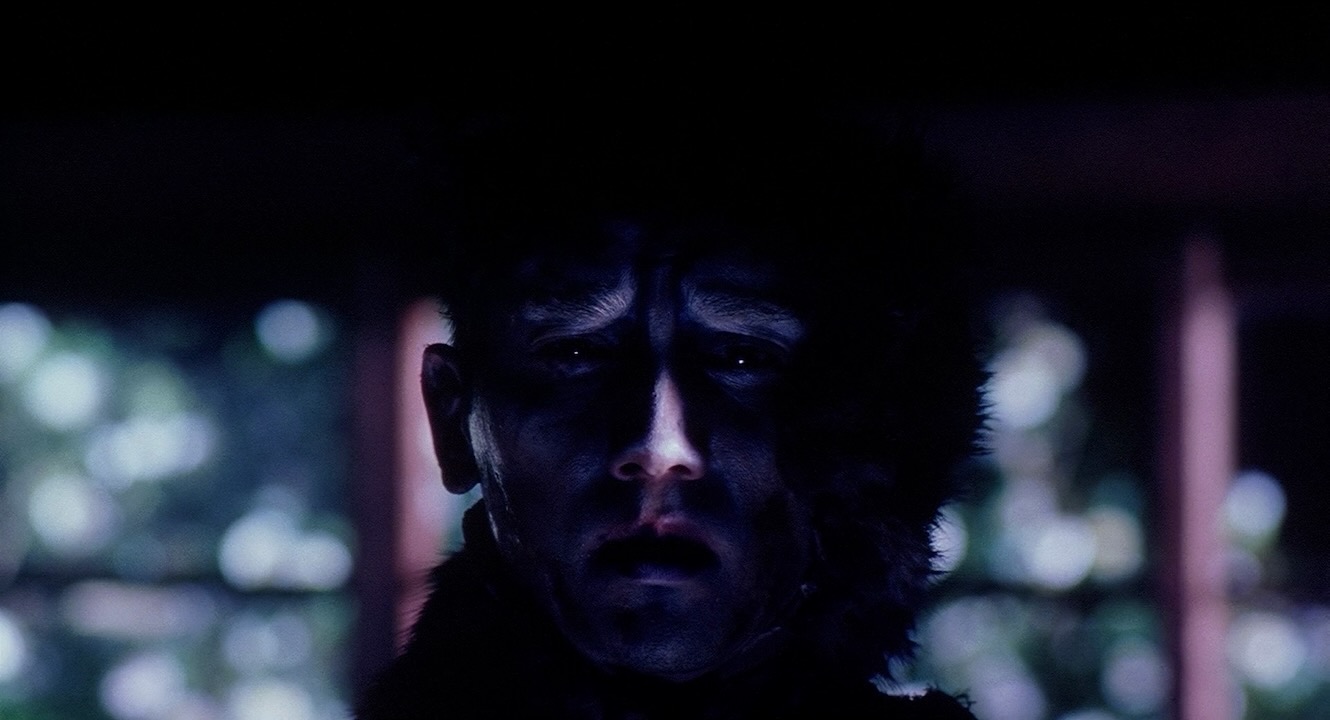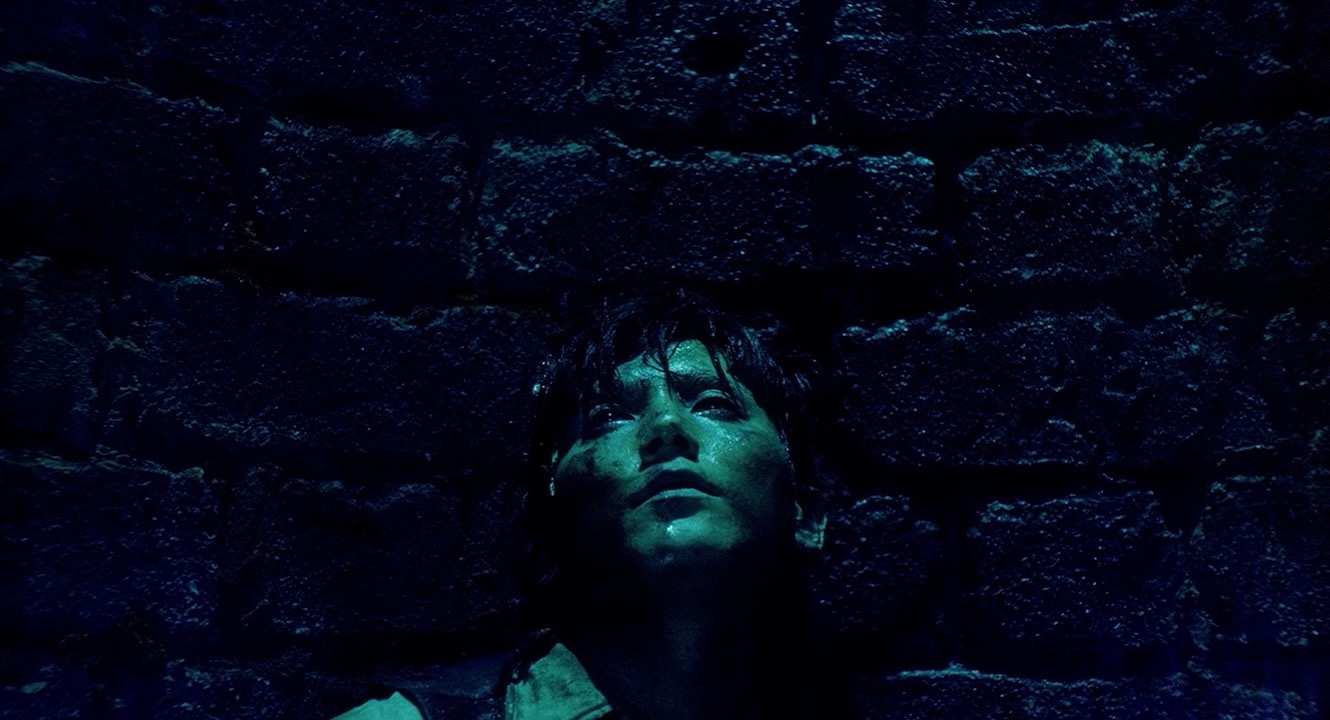Unique structure, starting with the girls in a crime town gazing at the local criminals, then spiraling into the lives of the criminals themselves. Who here is a Kanto wanderer, though?
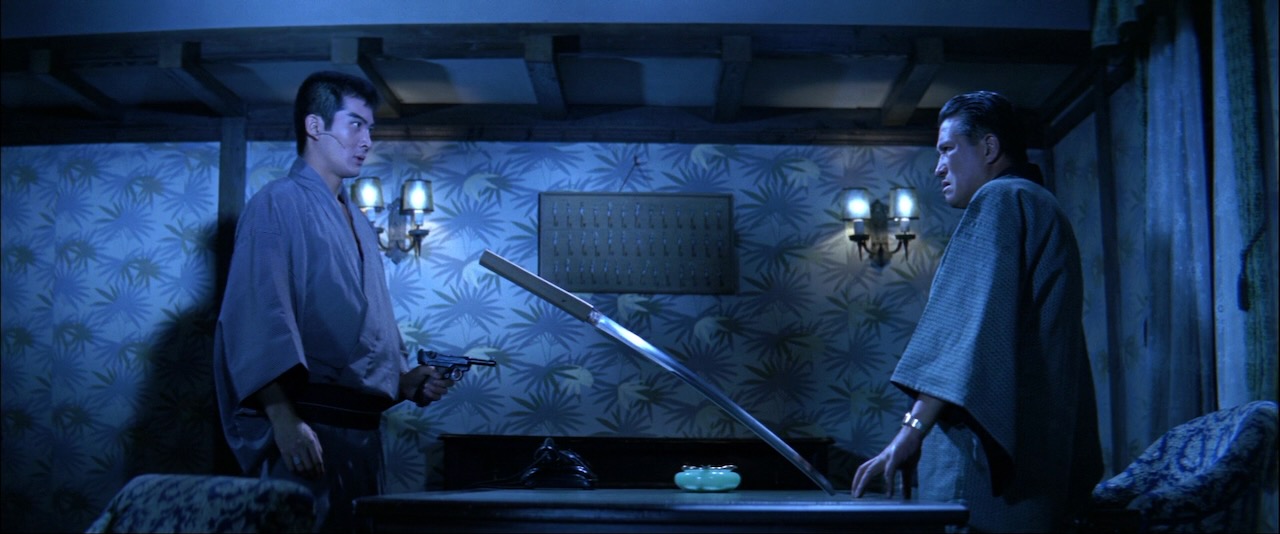
Gutsy chick Hanako (Fukasaku regular Sanae Nakahara) gets sold into prostitution, sidelining the young women, while scarfaced Kat (Akira Kobayashi, between Rusty Knife and the Yakuza Papers) tries in vain to protect his boss while the rival gang’s warrior Diamond is on a bloody rampage. Kat is also hot for Diamond’s gambler-hustler sister (Hiroko Ito of Tattooed Life), flashing back to when he got his scar over her years earlier.
It’s a pretty okay story, but sometimes leads to great moments like this:
